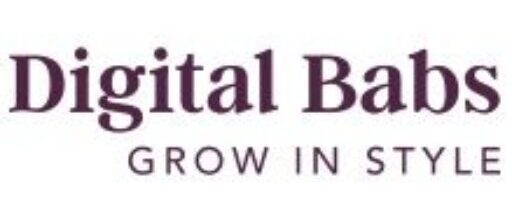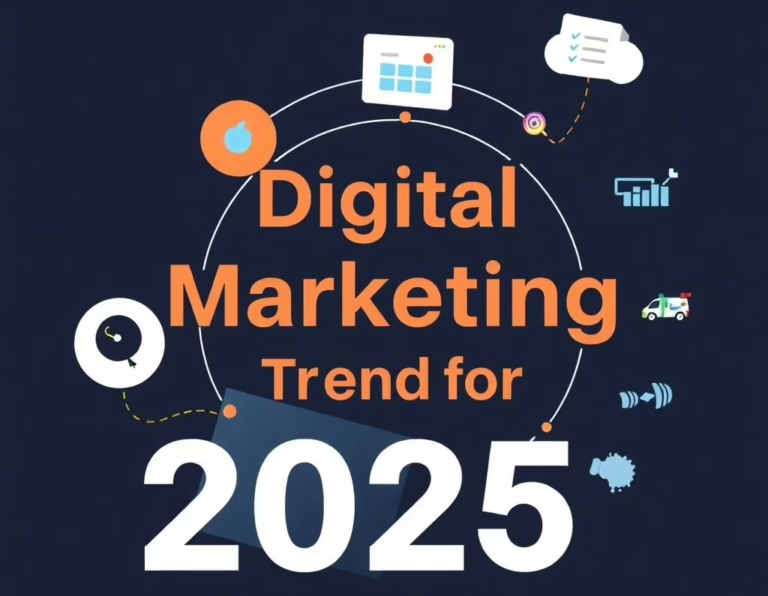A Step-by-Step Guide to Starting Your Own Digital Marketing Agency
In today’s fast-paced digital landscape, the demand for skilled digital marketing services has never been higher. If you’ve ever thought about turning your passion for online marketing into a thriving business, you’re not alone. Starting your own digital marketing agency can be an exciting and profitable venture, offering endless opportunities to help brands grow and connect with their audiences. But where do you begin? This step-by-step guide will walk you through the essential processes of launching your agency, from defining your niche to building a robust client base. Whether you’re a seasoned marketer or a newcomer eager to dive in, our comprehensive roadmap will equip you with the knowledge and strategies needed to navigate the dynamic world of digital marketing. Get ready to transform your vision into a reality and embark on the journey of entrepreneurship!

Understanding the Digital Marketing Landscape
In the ever-evolving world of digital marketing, staying abreast of the latest trends and technologies is crucial. The digital marketing landscape encompasses various strategies such as search engine optimization (SEO), content marketing, social media marketing, email marketing, and pay-per-click (PPC) advertising. Each of these areas requires a deep understanding of best practices and the ability to adapt to constant changes. For instance, Google’s algorithm updates can significantly impact SEO efforts, while new social media platforms can alter the dynamics of social media marketing.
Digital marketing is not just about understanding the tools and techniques; it’s also about understanding consumer behavior. The way people interact with brands online is constantly shifting. Therefore, a successful digital marketer must be adept at analyzing data to understand these behaviors and tailor marketing strategies accordingly. This includes recognizing patterns in user engagement, identifying which types of content resonate most with audiences, and predicting future trends.
The digital marketing landscape also involves a keen awareness of the competitive environment. With countless agencies vying for the same clients, understanding what sets you apart is vital. This might mean specializing in a particular industry, offering unique services, or employing innovative marketing techniques. Staying informed about your competitors’ strategies and successes can provide valuable insights that help inform your approach.
Identifying Your Niche and Target Audience
Identifying your niche is one of the most critical steps in establishing your digital marketing agency. A niche allows you to focus your efforts on a specific segment of the market, making it easier to develop tailored strategies that meet the unique needs of your clients. For instance, you might choose to specialize in digital marketing for e-commerce businesses, healthcare providers, or tech startups. Specializing can set you apart from generalist agencies and position you as an expert in your chosen field.
Equally important is defining your target audience. Your target audience consists of the businesses or individuals who are most likely to need your services. This involves conducting market research to understand their pain points, goals, and behaviors. You might create buyer personas to visualize your ideal clients and guide your marketing efforts. Knowing your target audience inside and out ensures that your messaging resonates and attracts the right clients.
Once you have identified your niche and target audience, it’s time to align your services with their needs. This means developing a deep understanding of the specific challenges your audience faces and how your expertise can help solve them. By offering solutions that address these pain points, you position your agency as invaluable to your clients’ success. Remember, the more precisely you can define your niche and target audience, the more effective your marketing efforts will be.
Essential Skills and Qualifications for Success
Running a successful digital marketing agency requires a diverse skill set. First and foremost, you need to have a strong foundation in various digital marketing disciplines such as SEO, PPC, content creation, social media management, and email marketing. Each of these areas demands specific expertise, so continual learning and professional development are essential. Certifications from reputable organizations like Google, HubSpot, and Facebook can also bolster your credibility.
In addition to technical skills, soft skills play a crucial role in your success. Strong communication skills are necessary for effectively conveying your ideas to clients and team members. Project management skills are vital for keeping campaigns on track and ensuring timely delivery. Analytical skills are indispensable for interpreting data and making informed decisions. Lastly, creativity and innovation are important for developing unique and engaging marketing strategies.
While skills are important, having the right qualifications can also enhance your agency’s reputation. A degree in marketing, business, or a related field can be advantageous, but it is not a strict requirement. What matters most is your ability to demonstrate your expertise and results. Building a portfolio of successful campaigns, gathering testimonials from satisfied clients, and showcasing your knowledge through blogs, webinars, and speaking engagements can help establish your authority in the industry.
Crafting a Comprehensive Business Plan
A well-crafted business plan is the cornerstone of your digital marketing agency. It serves as a roadmap, guiding you through the various stages of your business and helping you stay focused on your goals. Your business plan should start with an executive summary that provides a high-level overview of your agency, including your mission statement, vision, and objectives. This section sets the tone for the rest of your plan and should be compelling and concise.

The next section of your business plan should detail your market analysis. This involves researching your industry, competitors, and target audience to identify opportunities and threats. By understanding the market landscape, you can develop strategies that leverage your strengths and mitigate your weaknesses. This section should also include an analysis of your competitors, highlighting what they do well and where they fall short.
Your business plan should also outline your services, pricing strategy, and marketing plan. Describe the services you will offer and how they will meet the needs of your target audience. Explain your pricing strategy, including how you will structure your fees and what factors will influence your pricing. Finally, detail your marketing plan, including the strategies and channels you will use to attract and retain clients. This section should be specific and actionable, providing a clear path to achieving your business goals.
Building Your Brand Identity and Online Presence
Your brand identity is the essence of your digital marketing agency. It encompasses your logo, color scheme, typography, and overall visual aesthetic. More importantly, it reflects your agency’s values, mission, and personality. Creating a strong brand identity involves developing a cohesive and memorable visual presence that resonates with your target audience. This includes designing a professional logo, choosing a color palette that conveys your brand’s tone, and selecting fonts that enhance readability and appeal.
Equally important is building a robust online presence. Your website is the cornerstone of your online identity and often the first point of contact for potential clients. It should be visually appealing, easy to navigate, and optimized for search engines. Include essential information such as your services, pricing, case studies, and contact details. A blog can also be a valuable addition, allowing you to showcase your expertise and attract organic traffic through high-quality content.
Social media is another critical component of your online presence. Create profiles on relevant platforms such as LinkedIn, Facebook, Twitter, and Instagram, and regularly post engaging content that reflects your brand’s voice and values. Social media allows you to connect with your audience, share industry insights, and promote your services. Consistent branding across all your online channels helps build trust and recognition, making it easier for potential clients to remember and choose your agency.
Developing a Service Portfolio and Pricing Strategy
Your service portfolio is a comprehensive list of the services your digital marketing agency offers. This might include SEO, PPC, social media management, content marketing, email marketing, website design, and more. Each service should be clearly defined, with detailed descriptions of what it entails and the benefits it provides. A well-organized service portfolio helps potential clients understand the full scope of your offerings and how they can help achieve their marketing goals.
Developing a pricing strategy is equally important and can be challenging. Your pricing should reflect the value you provide while remaining competitive within the market. Consider different pricing models such as hourly rates, project-based fees, or retainer agreements. Each model has its pros and cons, so choose the one that aligns best with your business goals and client needs. Be transparent about your pricing and provide detailed quotes to avoid misunderstandings and build trust with your clients.
In addition to standard services, consider offering customizable packages that cater to specific client needs. For example, you might create a comprehensive digital marketing package for small businesses that includes SEO, social media management, and email marketing. Bundling services can make your offerings more attractive and provide better value to your clients. Regularly review and adjust your service portfolio and pricing strategy based on client feedback, market trends, and your agency’s growth objectives.
Effective Marketing Strategies to Attract Clients
Attracting clients to your digital marketing agency requires a multifaceted approach. Content marketing is a powerful strategy that involves creating and sharing valuable content to attract and engage your target audience. This can include blog posts, whitepapers, case studies, infographics, and videos. High-quality content not only showcases your expertise but also improves your search engine rankings, driving more organic traffic to your website.
Networking is another essential strategy for attracting clients. Attend industry conferences, webinars, and networking events to meet potential clients and partners. Join professional organizations and online communities where your target audience is active. Building relationships and establishing a strong network can lead to referrals and new business opportunities. Don’t underestimate the power of word-of-mouth marketing; satisfied clients who refer your services can be one of your most valuable assets.
Utilizing paid advertising can also help you reach a broader audience. Google Ads, Facebook Ads, LinkedIn Ads, and other PPC platforms allow you to target specific demographics and interests, driving highly qualified leads to your website. Additionally, consider offering free workshops, webinars, or consultations to showcase your expertise and attract potential clients. These strategies not only generate leads but also build trust and credibility with your audience.
Tools and Resources for Managing Your Agency
Managing a digital marketing agency involves juggling multiple tasks and projects. Having the right tools and resources can streamline your operations and improve efficiency. Project management tools like Asana, Trello, or Basecamp help you manage tasks, deadlines, and team collaboration. These tools provide a centralized platform for tracking progress and ensuring that projects stay on schedule.
Customer relationship management (CRM) systems like Salesforce, HubSpot, or Zoho are essential for managing client interactions and maintaining strong relationships. CRMs help you track leads, manage sales pipelines, and automate communication, ensuring that you stay organized and responsive to client needs. Email marketing tools like Mailchimp, Constant Contact, or Sendinblue can help you manage and automate your email campaigns, keeping your clients informed and engaged.
Analytics tools like Google Analytics, SEMrush, or Ahrefs are crucial for measuring the success of your marketing efforts. These tools provide insights into website traffic, user behavior, keyword rankings, and more, allowing you to make data-driven decisions. Social media management tools like Hootsuite, Buffer, or Sprout Social help you schedule posts, monitor engagement, and analyze performance across multiple platforms. Investing in the right tools and resources can significantly enhance your agency’s productivity and effectiveness.
Measuring Success and Scaling Your Digital Marketing Agency
Measuring the success of your digital marketing agency involves tracking key performance indicators (KPIs) that align with your business goals. Common KPIs include website traffic, conversion rates, client acquisition costs, and return on investment (ROI). Regularly analyzing these metrics helps you identify areas of improvement and make informed decisions. Use analytics tools to gather data and generate reports that provide a clear picture of your agency’s performance.

Client feedback is another valuable measure of success. Regularly solicit feedback from your clients to understand their satisfaction levels and identify areas where you can improve. Positive testimonials and case studies can also serve as powerful marketing tools, showcasing your agency’s capabilities and results. Building strong relationships with your clients and consistently delivering high-quality services will lead to long-term success and client retention.
Scaling your digital marketing agency involves expanding your services, increasing your client base, and growing your team. This requires careful planning and strategic investment. Consider hiring additional team members or partnering with freelancers to handle increased workloads. Invest in training and development to ensure your team stays up-to-date with the latest industry trends and technologies. Additionally, explore new markets and niches to diversify your client base and increase revenue streams. By focusing on continuous improvement and strategic growth, you can scale your agency and achieve long-term success.
You could also check out the following articles on Digital Marketing,
Will AI Replace Digital Marketing? Exploring the Future of Marketing in a Tech-Driven World
Will AI Replace Digital Marketing? Understanding the Future of Creativity and Automation




